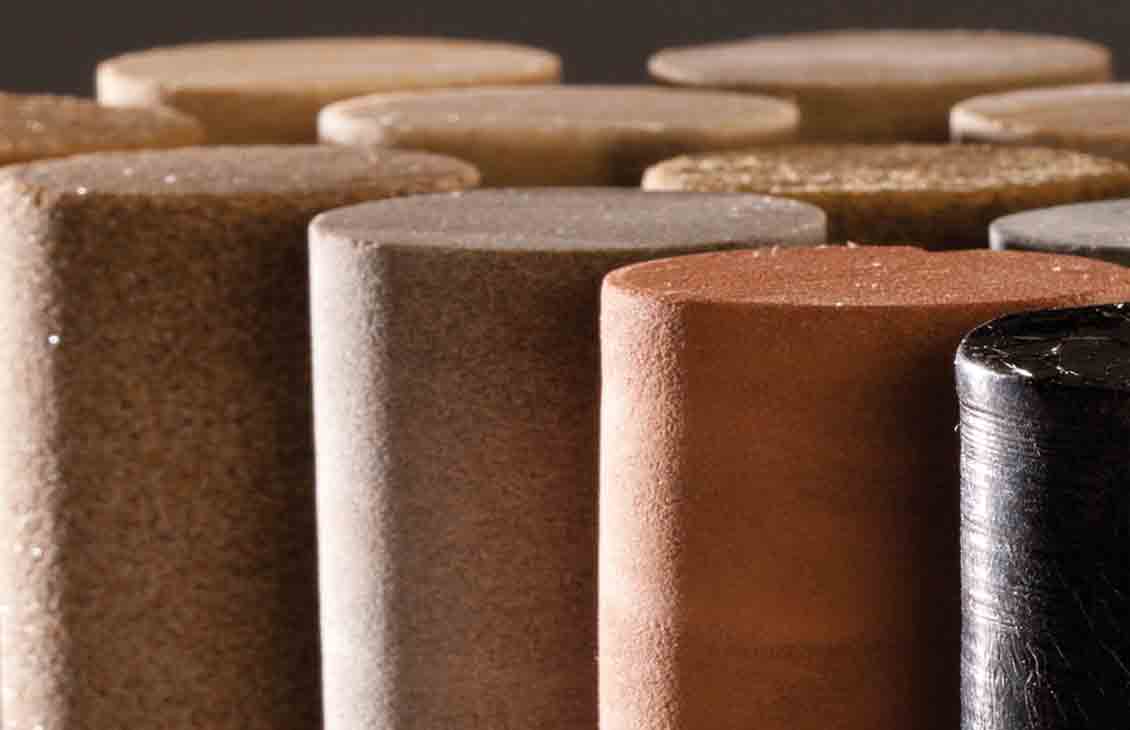ASTM D7263 Standard Test Methods for Laboratory Determination of Density of Rock Specimens
The ASTM D7263 standard provides a detailed framework for determining the density of rock specimens, a critical parameter in assessing reservoir properties and optimizing drilling operations. This test method is essential for quality managers, compliance officers, R&D engineers, and procurement teams within the oil & gas sector who need accurate data to inform their decisions.
The ASTM D7263 standard covers several key aspects of density determination, including the use of specific gravimetric methods, water displacement techniques, and pycnometer approaches. The choice of method depends on the type and size of the rock specimen being tested. For instance, larger specimens may require more robust methods like water displacement or pycnometer testing, while smaller samples can be accurately measured using a balance.
The process involves several steps to ensure accurate results. First, the rock sample must be carefully prepared according to ASTM guidelines, which include cleaning and conditioning to remove any external contaminants that could affect the measurement. Once prepared, the specimen is weighed in air and then submerged in water or another suitable liquid medium to measure its apparent weight. The difference between these two measurements provides the specific gravity of the rock.
The accuracy of density determination is crucial for several reasons. In reservoir engineering, the density of rocks directly influences estimates of porosity, permeability, and fluid saturation, all critical factors in optimizing extraction processes. By accurately determining the density of core samples, oil & gas companies can better understand the physical properties of their reservoirs and make informed decisions about drilling strategies.
Another important application is in the quality control process for manufacturing cemented casings or other downhole tools. The density of these materials must meet specific standards to ensure they function correctly under extreme conditions. ASTM D7263 helps manufacturers verify that their products meet these requirements by providing a standardized method for measurement.
The standard also plays a role in the procurement process, where suppliers are required to provide test data showing compliance with ASTM D7263. This ensures that only high-quality materials and components are used in oil & gas operations, enhancing safety and efficiency.
To summarize, ASTM D7263 is an indispensable tool for labs involved in oil & gas testing, offering a robust methodology for determining the density of rock specimens. Its importance lies in its ability to provide accurate, repeatable results that inform critical decisions across various aspects of the industry.
Industry Applications
| Application | Description |
|---|---|
| Reservoir Engineering | Determining rock density helps in assessing reservoir porosity, permeability, and fluid saturation. |
| Cemented Casing Manufacturing | Ensuring that the materials used meet specific density standards for optimal performance. |
| Quality Control | Verifying product compliance with industry standards. |
| Application | Description |
|---|---|
| Downhole Tool Manufacturing | Guaranteeing the density of materials used in downhole tools meets specified requirements. |
| Procurement | Evaluating supplier compliance with ASTM D7263 standards to ensure high-quality products. |
Customer Impact and Satisfaction
The implementation of ASTM D7263 has a profound impact on customer satisfaction within the oil & gas sector. By providing accurate density data, labs can help their clients make informed decisions that lead to more efficient operations and safer processes.
For reservoir engineers, accurate density measurements mean better predictions about fluid behavior in wells, which translates to improved drilling efficiency and reduced risk of equipment failure. In manufacturing, the use of ASTM D7263 ensures that products meet industry standards, enhancing customer confidence and trust. Procurement teams benefit from this standard as it streamlines the evaluation process for suppliers, ensuring compliance with stringent quality requirements.
Customer satisfaction is further enhanced by the transparency and reliability of results provided through ASTM D7263-compliant testing. This allows clients to have a clear understanding of the materials they are dealing with, leading to more successful projects and higher overall satisfaction.
Frequently Asked Questions
Environmental and Sustainability Contributions
- Reduces material waste through accurate measurement, ensuring only necessary amounts are used.
- Enhances recycling efforts by providing reliable data for reprocessing materials.
- Supports sustainable practices in manufacturing by ensuring compliance with industry standards.





